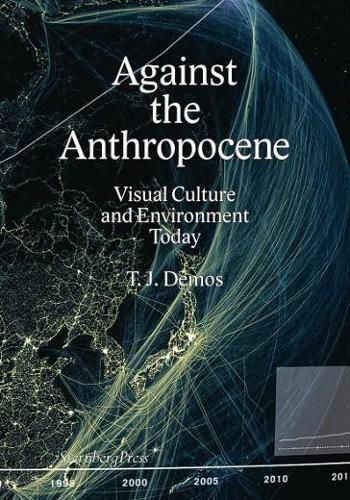Readings Newsletter
Become a Readings Member to make your shopping experience even easier.
Sign in or sign up for free!
You’re not far away from qualifying for FREE standard shipping within Australia
You’ve qualified for FREE standard shipping within Australia
The cart is loading…






A critique of the discourse on the Anthropocene and the creative alternatives to it to be found through the arts, sciences, and humanities.Addressing the current upswing of attention in the sciences, arts, and humanities to the new proposal that we are in a human-driven epoch called the Anthropocene, this book critically surveys that thesis and points to its limitations. It analyzes contemporary visual culture-popular science websites, remote sensing and SatNav imagery, eco-activist mobilizations, and experimental artistic projects-to consider how the term proposes more than merely a description of objective geological periodization. This book argues that the Anthropocene terminology works ideologically in support of a neoliberal financialization of nature, anthropocentric political economy, and endorsement of geoengineering as the preferred-but likely disastrous-method of approaching climate change. To democratize decisions about the world’s near future, we urgently need to subject the Anthropocene thesis to critical scrutiny and develop creative alternatives in the present.
$9.00 standard shipping within Australia
FREE standard shipping within Australia for orders over $100.00
Express & International shipping calculated at checkout
Stock availability can be subject to change without notice. We recommend calling the shop or contacting our online team to check availability of low stock items. Please see our Shopping Online page for more details.
A critique of the discourse on the Anthropocene and the creative alternatives to it to be found through the arts, sciences, and humanities.Addressing the current upswing of attention in the sciences, arts, and humanities to the new proposal that we are in a human-driven epoch called the Anthropocene, this book critically surveys that thesis and points to its limitations. It analyzes contemporary visual culture-popular science websites, remote sensing and SatNav imagery, eco-activist mobilizations, and experimental artistic projects-to consider how the term proposes more than merely a description of objective geological periodization. This book argues that the Anthropocene terminology works ideologically in support of a neoliberal financialization of nature, anthropocentric political economy, and endorsement of geoengineering as the preferred-but likely disastrous-method of approaching climate change. To democratize decisions about the world’s near future, we urgently need to subject the Anthropocene thesis to critical scrutiny and develop creative alternatives in the present.